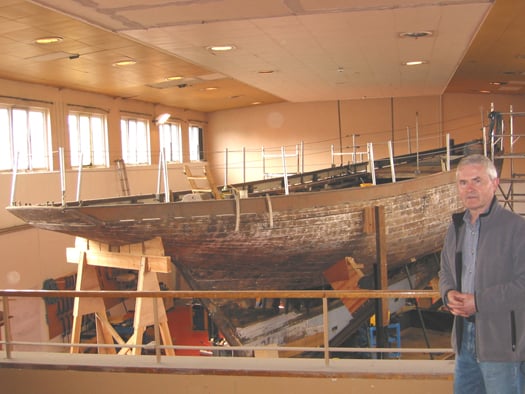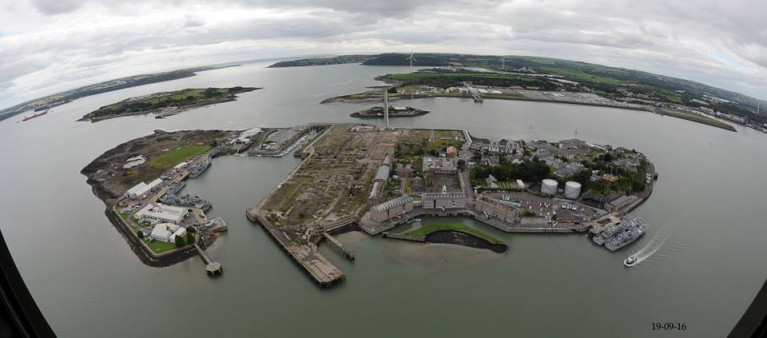Displaying items by tag: Collins Barracks
Just six young Naval Service recruits passed out of training in what's believed to be the smallest class in modern times encountered by the navy, which is already dogged by personnel shortages.
Normally, the Naval Service would get anything between 25 and 40 in a recruit class and needs to ratchet up recruitment significantly as it is already more than 200 personnel short of the minimum number it requires.
The Irish Examiner understands that initially, 15 people enlisted in this particular recruit class. They were primarily trained at the army's Collins' Barracks in Cork City because there is more space there than the Naval Service headquarters on Haulbowline Island and extra space was required due to Covid-19 restrictions.
Nine dropped out during training, leaving just six to pass out after completing a 22-week course.
Click here for more on the chronic shortage of naval crew.
Conserving Historic Vessels
John Kearon – who is himself from Arklow – is one of the foremost in this field, with a distinguished career centred on the historic ships programme in Liverpool. His patient work, in making Asgard a non-seagoing conserved version of the vessel as she was when Erskine and Molly Childers had her built as a wedding present from her Molly's father, has clarified design features which had been lost in alterations made in the 1930s and the 1960s.

John Kearon with Asgard in Collins Barracks at an early stage of the conservation. Photo: W M Nixon
The quality of his research and craftsmanship has also helped in deciding Asgard's future. It is right that she should be conserved rather than restored. But if any group wishes to build a sailing replica, then the definitive plans are now available.
The features on aspects of Asgard's conservation are only part of a very comprehensive extensively illustrated book which covers historic ships and boats of any types. Naturally there's a significant element of serious academic insight. But those of us who are fascinated by all craft immediately warm to a learned volume which, despite its adherence to historical rigour and correctness, nevertheless refers to each vessel as "she".
WMN
Understanding Historic Vessels-Volume 3
Published by National Historic Ships, £30.
www.nationalhistoricships.org.uk






























































